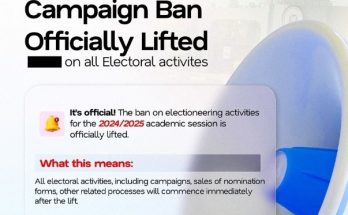By Mustapha Favour
It is 6:50 a.m. in Agbowo.
The sky still wears a sleepy blue, but the street outside Koko Dome is already alive with rustling plastic bags, blaring horns, and the familiar chant of tricycle riders yelling, “Gate! Gate!! UI gate, straight!!”
Remi, a 200-level student of Education and Political Science, is already halfway through her sprint, tote bag swinging, face creased with urgency. Her first class starts at 8 a.m., but experience has taught her that the real battle isn’t academic. It’s transportation.
By 7:00 a.m., the game changes. Tricycles (keke) thin out. Buses fill up faster than lecture halls, and a queue of stranded students builds at every corner — at Pako, NNPC, and Aare. Some begin the slow, resigned walk to school. Others, like Remi, attempt to bargain with bike men who double their fares once the sun begins to sting.
For many students living off-campus in Agbowo, Ajibode, Barika, and Orogun, this is not just routine. It’s a survival ritual.
Agbowo is often praised for its proximity to UI, but at certain hours, its location becomes a trap. “On days when I have 8:00 a.m. classes, I leave the house by 6:30,” says Tobi, a 300-level Psychology student. “If you leave any later, you might get stuck waiting for over 30 minutes. And by then, lecturers have locked the doors.”
Rush hour is war. Fares rise without warning. A ride that costs ₦200 at noon might cost ₦500 at 7 a.m. or 8 p.m. Keke drivers know this. Students know it too. But there’s little choice.
Those who stay farther in Ajibode or Orogun add an extra layer of complexity. They often rely on connecting rides and face double the delays, especially if there’s traffic along the Bodija axis.
Deja Vu at the School Gate
One would think that Remi’s struggles would vanish when she steps onto the school premises. However, at the school gate lies the continuation of the same battle she began her day with.
For many UI students who manage to survive the morning rush outside the walls of the university, another test of endurance begins on campus, thanks to the selective nature of Keke riders. It’s become an all-too-familiar scene: a swarm of students waiting by the school gate, bags in hand, only to hear the Keke/Cab drivers chant in unison, “ISI! ISI! Abdulsalam! Abdulsalam! Idia! Awo!”—their preferred and often only declared destination.
While transportation rates within UI are fixed, the problem lies in the drivers’ unwillingness to go anywhere other than their preferred destination. This leaves students heading to other faculties—Science, Arts, Law, Tech, and beyond—frustrated and stranded. The result? Long treks across campus, missed classes, and a growing sense of helplessness.
“I was heading to the Faculty of Arts, and five Kekes turned me down just because they weren’t going that way,” lamented Racheal, a 200-level student. “It’s not about money—it’s just that they don’t want to go anywhere that’s not convenient for them.” During the early hours of the morning, the tricycle riders often ignore the ‘first come first serve’ rule that would normally be followed in the afternoons and late mornings.
With no real enforcement or organised routing system in place, students are left at the mercy of drivers who prioritise convenience over coverage. And while the distance between faculty buildings may not seem overwhelming on a map, under the sweltering sun and with lectures ticking away, every extra step becomes a burden.
From the main gate to the depths of UI’s academic terrain, the journey is far from straightforward and even farther from fair. In a university that prides itself on excellence, the silent struggles of off-campus students often go unnoticed. While some lecturers offer flexible attendance policies, many others demand punctuality without considering the logistical nightmare behind it.
Nevertheless, the struggle doesn’t end when lectures do.“I don’t like staying back in school once it’s past 7 p.m.,” says Sarah, a student of Theatre Arts. “By then, most of the tricycles are gone. If you’re unlucky, you’ll trek from the gate to Barika.”
For students who attend night classes, group rehearsals, or press meetings, the options are limited. Darkness brings insecurity, inflated prices, and a quiet fear, especially for female students.
It’s not just about getting home. It’s about getting home safely. Students who decide to.venture into the school in the evening are also subjected to what their counterparts in the early mornings face. With drivers ignoring the ‘first come first serve’ rule many students are forced to remain at the bus stop until a driver chooses to go their way.
There have been occasional talks about a student bus system, but nothing concrete has come of it. In the meantime, students continue to adapt: waking earlier, spending more, or walking long distances.
Still, amid the chaos, there’s something remarkable about UI students. The determination to show up tired, breathless, and sweaty but present. Ready to learn. Ready to hustle.And as another sun rises over Agbowo, Remi slings on her tote bag, checks the time, and prepares to race the clock again.



